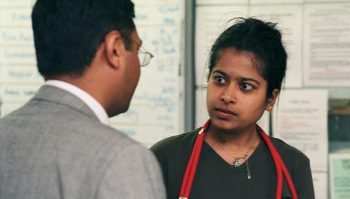Sports and Exercise Medicine (SEM) trainees
These are individuals undertaking a 5 year training programme so as to become consultants in the emerging specialty of Sports and Exercise medicine. As part of this training they will spend 6 months in a general practice setting.
Key issues:
· You will not be their employer, this responsibility will rest with their host trust, usually the NOC.
· You will be eligible to claim a trainers grant whilst they are in practice with you. However you will need to claim this directly from the Finance Department at the Deanery, and clearly mark that it is for an SEM trainee.
· They will have an electronic portfolio but this will not be from the RCGP but from Rheumatology, as they are training IN rather than FOR general practice. You will not be their educational supervisor but you will have access to this e-portfolio.
· The level of clinical supervision required will vary significantly between SEM trainees. Some will be at the level of an ST1 whereas others may even have previously completed their GP training before switching to SEM.
· If you identify any performance issues with the SEM trainee then, although you are welcome to discuss them informally with the PD team and at your trainers’ group, these would be escalated up via their ES and the SEM team as appropriate.
· They will be expected to participate in local OOHs arrangements.
· If they are new to General Practice they will be expected to attend the ST2 half day release sessions.
· You may be asked to help them with projects related to exercise and health that fit well in a primary care setting. Previous examples have included pulmonary rehabilitation in COPD or resuming sexual intercourse after CABG.
Military trainees
Individuals undertaking their GP training whilst in the military usually undertake at least six months in an NHS GP placement. The arrangements for these are co-ordinated by the GP PD team and the Defence Deanery. We seem to have RAF trainees primarily but could potentially have trainees from any of the services.
Key issues for training practices taking a military GPSTR:
· You will not be the employer of the GPSTR (this responsibility will remain with the Defence Deanery) and thus it is not normal practice for the Defence Deanery to provide references for prospective GPSTRs. You can however assume that there have not been any previous issues identified within their training programme unless these have been expressly discussed with you.
· You will be asked to sign a service level agreement (SLA) with the Defence Deanery which will detail your responsibilities and arrangements for claiming the trainer’s grant (which is the same as for an NHS trainee).
· You may not be the ES of the trainee but you will have access to, and be expected to comment on, their e-portfolio. Whether you are the ES will be specified in your SLA.
· You may be asked if you can extend the duration of the placement – please do NOT agree to this without consulting your GP PD team as this may have untoward consequences for Oxford Deanery GP trainees.
· The military trainee will be expected to attend Oxford District GP training day-release course. There may also be a small number of military-specific training courses.
· If you identify any performance issues with the GPSTR then, although you are welcome to discuss them informally with the PD team and at your trainers’ group, these would be escalated up via the Defence Deanery AD team if necessary.
· The purpose of the placement is to ensure that the GPSTR is exposed to the whole breadth of primary care. So it would be great if you could try and ensure that the trainee gets experience in areas that are less prevalent within a military setting, such as elderly care, chronic disease management and palliative care. They are expected to participate in the local OOHs arrangements.
· The requirements for MRCGP are exactly the same as for an NHS trainee.

